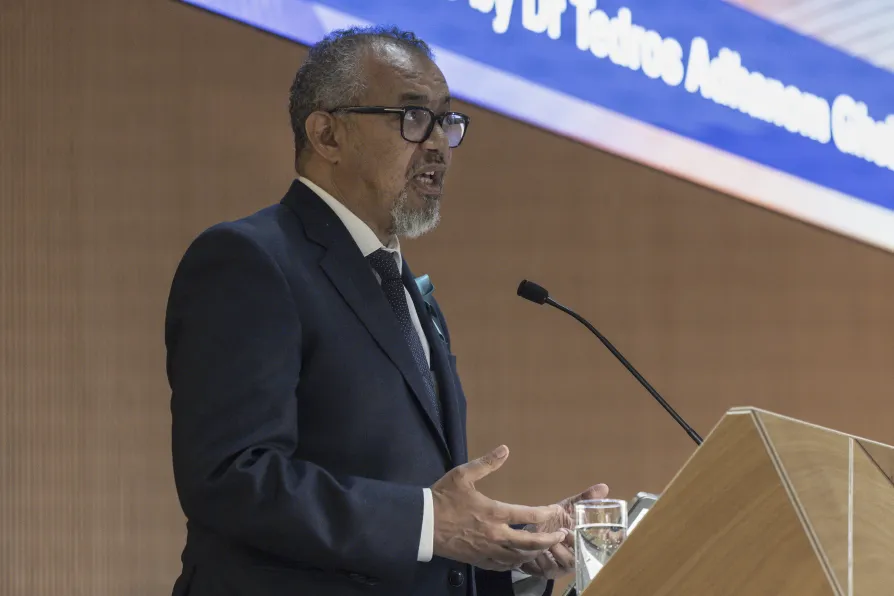
 Director General of WHO Tedros Adhanom Ghebreyesus during the opening of the 78th World Health Assembly at the European headquarters of the United Nations in Geneva, Switzerland, May 19, 2025. Photo: Magali Girardin/Keystone via AP
Director General of WHO Tedros Adhanom Ghebreyesus during the opening of the 78th World Health Assembly at the European headquarters of the United Nations in Geneva, Switzerland, May 19, 2025. Photo: Magali Girardin/Keystone via AP
STRIPPED of funding from the United States, the World Health Organisation (WHO) chief today appealed to member countries to support its request for a $2.1 billion (£1.58bn) annual budget.
Describing the budget request as “extremely modest,” WHO director-general Tedros Adhanom Ghebreyesus compared the budget to the cost of war or the outlays for advertising campaigns for tobacco.
After nearly 80 years of striving to improve human lives and health, which critics say it has done poorly or not enough, the UN health agency is fighting for its existence after US President Donald Trump halted funding to the body in January.
The US has been WHO’s largest donor.
Mr Tedros said: “$2.1bn is the equivalent of global military expenditure every eight hours. $2.1bn is the price of one stealth bomber to kill people.”
He told the annual assembly that “$2.1bn is one-quarter of what the tobacco industry spends on advertising and promotion every single year. Again, a product that kills people. It seems somebody switched the price tags on what is truly valuable in our world.”
The UN health body has presented a budget for the next two years that is 22 per cent less than originally planned, largely in response to US and other Western funding cuts and says it has landed commitments for about 60 per cent of that. But it still faces a budget gap of $1.7bn (£1.28bn).
“We know that in the current landscape, mobilising that sum will be a challenge. We are not naive to that challenge,” Mr Tedros said.
“But for an organisation working on the ground in 150 countries with a vast mission and mandate that member states have given us, $4.2bn for two years — or $2.1bn a year — is not ambitious. It’s extremely modest,” he said.
As a result of the cuts, the UN health agency this year has seen a plunge in its ability to carry out its work including heading the global response to pandemics like Covid-19 or outbreaks like polio or Ebola.
Matthew Kavanagh, the director of Georgetown University’s Centre for Global Health Policy and Politics, said that the UN body “faces an existential crisis and literally millions will likely die needlessly on the current trajectory.”
The assembly is expected to agree to a “pandemic treaty” that was born of a desire to avoid any replay of the patchy, unequal response to Covid-19 when the next pandemic hits.

The biggest strike in global history is a template for our future. The silence tells you all you need to know, writes CLAUDIA WEBBE













